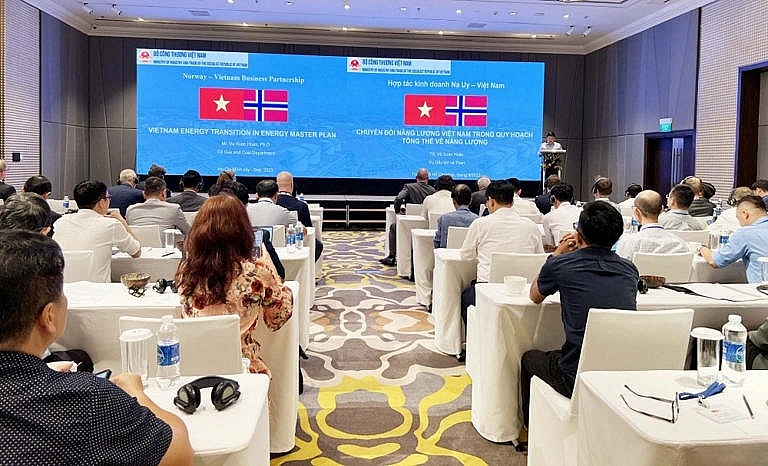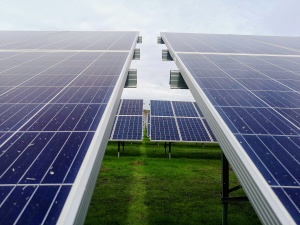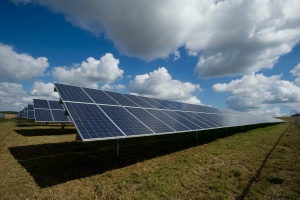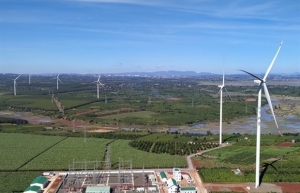Norway and Vietnam collaborate on energy transition
According to experts from the Energy Transition: Norway-Vietnam Business Partnership seminar that was organised by The Royal Norwegian Embassy in Vietnam and Norwegian Energy Partners in coordination with the Oil, Gas and Coal Department of the Ministry of Industry and Trade on September 13 in Ho Chi Minh City, Power Development Plan VIII (PDP8) is an opportunity for the domestic and foreign business community, including Norwegian energy businesses, to provide their professional experience and create competitive advantages, especially through technology.
 |
Ngo Thuy Quynh, deputy director of the Oil, Gas and Coal Department, said that the Vietnamese government consistently pays attention and sets goals for energy development to ensure it meets the nation's socioeconomic development requirements.
"Vietnam's energy industry is constantly growing, but it still faces challenges in terms of energy supply and conversion, while the global energy landscape continues to face many unpredictable fluctuations," Quynh said.
Addressing the challenges of the energy industry, PDP8 promotes an equitable energy transition, with specific goals such as 15-20 per cent of renewable energy by 2030 and 80-85 per cent by 2050.
Along with that, greenhouse gas emissions are set to fall to around 400-450 million tons by 2030 and about 100 million by 2050.
Norwegian energy enterprises have strengths in diverse fields such as offshore wind power, clean hydrogen, carbon capture and storage, and liquefied natural gas.
Many of these businesses are leading the way with new technological innovations to decarbonise industries and promote energy efficiency.
In Vietnam, besides a number of Norwegian businesses that have been operating for many years, such as Equinor, Mainstream, VARD, and Scatec, many others are looking for opportunities to cooperate with domestic partners through future projects.
Deputy head of the Norwegian Mission Mette Møglestue said that, while the social and economic situations have changed over time, Norway and Vietnam still share the same ambition to become low-emission societies by 2050.
The ambitious plans set out in PDP8 are a roadmap for the country’s energy infrastructure development that aims to mobilise international support for Vietnam to achieve its net-zero-emissions goal by 2050.
Now, energy investors, international businesses operating in Vietnam, and the country’s development partners are closely monitoring how these plans are implemented.
“The private sector is playing and will continue to play an important role in the country’s energy transition efforts through its innovation, planning, and investment plans. We are encouraged by the private sector's strong interest in finding sustainable business models,” added Møglestue.
Norway is not only a pioneer in terms of offshore wind with the world's largest floating offshore wind farm in Hywind Tampen, it is also at the forefront of numerous other clean energy technologies.
As energy resources become increasingly limited, it is more necessary than ever to ensure they are properly used and managed sustainably.
 | Southeast Asia's $100 billion opportunity for green mobility, clean power In Southeast Asia, including Vietnam, low-carbon mobility and clean power have the potential to contribute $90 billion to $100 billion in revenues by 2030. |
 | Vietnam prioritises solar energy development in the north The nation is introducing a revised pricing structure to boost solar energy projects in its northern regions, reflecting the area's lower solar radiation intensity compared to its central and southern counterparts. |
 | Renewable energy companies report lower earnings, burdened with bond debts Renewable energy companies have recorded declining earnings results, partly due to burdens on corporate bond payment. |
What the stars mean:
★ Poor ★ ★ Promising ★★★ Good ★★★★ Very good ★★★★★ Exceptional
Related Contents
Latest News
More News
- Trung Nam-Sideros River consortium wins bid for LNG venture (January 30, 2026 | 11:16)
- Vietnam moves towards market-based fuel management with E10 rollout (January 30, 2026 | 11:10)
- Envision Energy, REE Group partner on 128MW wind projects (January 30, 2026 | 10:58)
- Vingroup consults on carbon credits for electric vehicle charging network (January 28, 2026 | 11:04)
- Bac Ai Pumped Storage Hydropower Plant to enter peak construction phase (January 27, 2026 | 08:00)
- ASEAN could scale up sustainable aviation fuel by 2050 (January 24, 2026 | 10:19)
- 64,000 hectares of sea allocated for offshore wind surveys (January 22, 2026 | 20:23)
- EVN secures financing for Quang Trach II LNG power plant (January 17, 2026 | 15:55)
- PC1 teams up with DENZAI on regional wind projects (January 16, 2026 | 21:18)
- Innovation and ESG practices drive green transition in the digital era (January 16, 2026 | 16:51)

 Tag:
Tag:



















 Mobile Version
Mobile Version